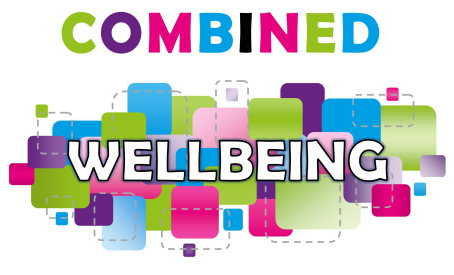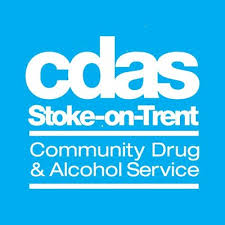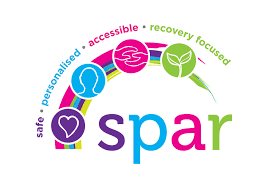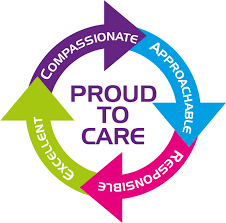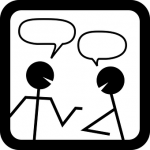Sleep health

Information
Here you’ll find answers to some common questions concerning your sleep heath.
Select the underlined questions below to see more.
Sleep is an essential part of life, but just because you slept for 10 hours doesn’t necessarily mean you’ll feel better for it! Our sleep is divided into cycles that process memories and emotions and allow the body and mind to rest – so we can thrive the next day.
Lack of good quality sleep is linked to:
- Difficulties concentrating, restlessness and trouble making decisions
- High levels of stress
- Potential reduced growth in young children and teenagers linked to chronic poor sleep
- Difficulties forming and maintaining relationships
 Anyone!
Anyone!
Sleep difficulties are very common in the 21st century, affecting people of all ages and backgrounds.
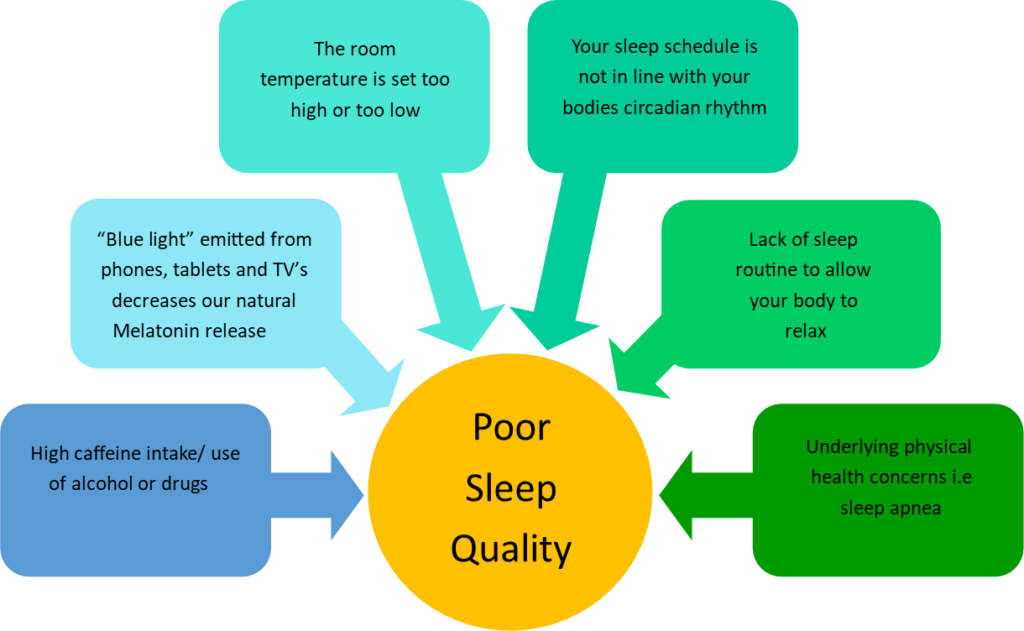
Melatonin and Your Body Clock
Your body makes a chemical called melatonin every day. Melatonin helps you feel sleepy by following a natural cycle called your body clock or circadian rhythm. Normally, melatonin goes up when it gets dark, telling your body it’s time to sleep.
But many of us use phones, TVs and tablets in the evening. The blue light from these devices tricks your brain into thinking it’s still daytime. This delays melatonin being made, which can make falling asleep harder.
When You Feel Tired but Can’t Sleep
You might notice yawning more or feeling achy when you’re tired—signs that your body wants to rest. But even then, sometimes you just can’t fall asleep. You may toss and turn, feeling frustrated. This happens because releasing melatonin is just the first step in a longer process your body needs to fully prepare for sleep.
Other Common Reasons People Struggle to Sleep
- Poor Sleep Habits: Going to bed at different times, using phones or screens just before bed, drinking caffeine or alcohol late in the day or not having a relaxing routine can stop your body from settling down.
- Stress and Worries: Feeling anxious or stressed about work, family, health or other problems keeps your mind busy, making it hard to switch off and fall asleep. Mental health issues like depression can also affect sleep.
- Sleep Problems: Conditions such as sleep apnoea (breathing pauses during sleep), restless legs, or narcolepsy can interrupt your sleep and leave you feeling tired.
- Health Issues: Long-term illnesses like asthma, heartburn, pain, diabetes, or thyroid problems can make it difficult to sleep well.
- Medications and Substances: Some medicines, caffeine, nicotine and alcohol affect how you fall asleep or stay asleep.
- Noise and Environment: Loud noises, too much light, an uncomfortable bed or the wrong room temperature can disturb your sleep.
- Changes in Your Schedule: Shift work, jet lag or waking up very early or late can confuse your body clock and make sleeping harder.
It’s a predictable cycle that includes two parts –Non-REM (NREM) sleep and “Rapid Eye Movement” (REM) cycle which is where we dream
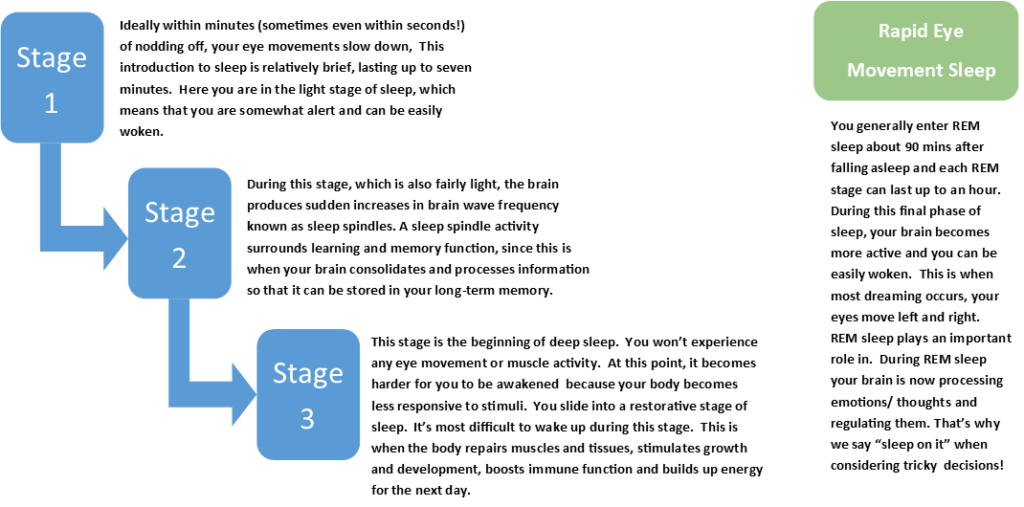
Many people including clinicians have said:
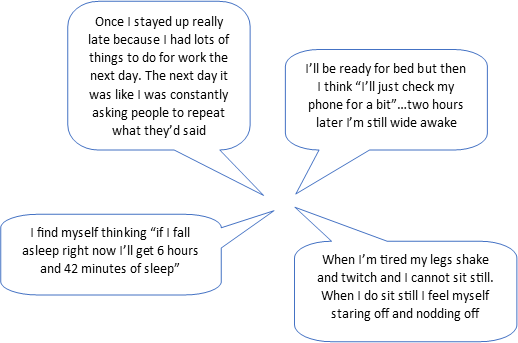
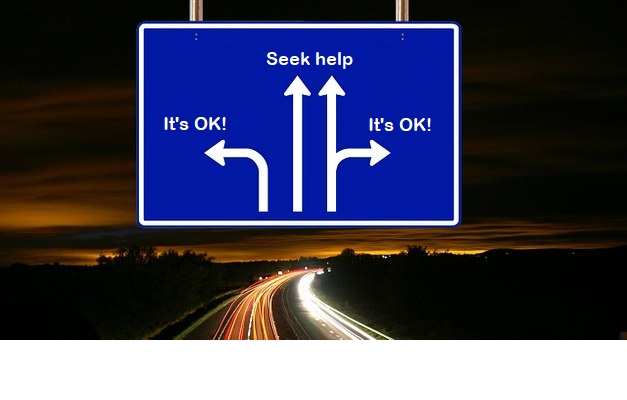
Coping with
- Do something relaxing before bed, such as reading or taking a warm bath.
- Use an alarm clock instead of your phone to reduce temptation.
- Write down your to-dos and worries so you can forget about them until morning.
- Try some mindfulness activities before bed, like colouring, reading, listening to calming music, using aromatherapy oils or wrapping yourself in a cosy blanket.
If you’re struggling with sleep, here are some ideas that may help you cope:
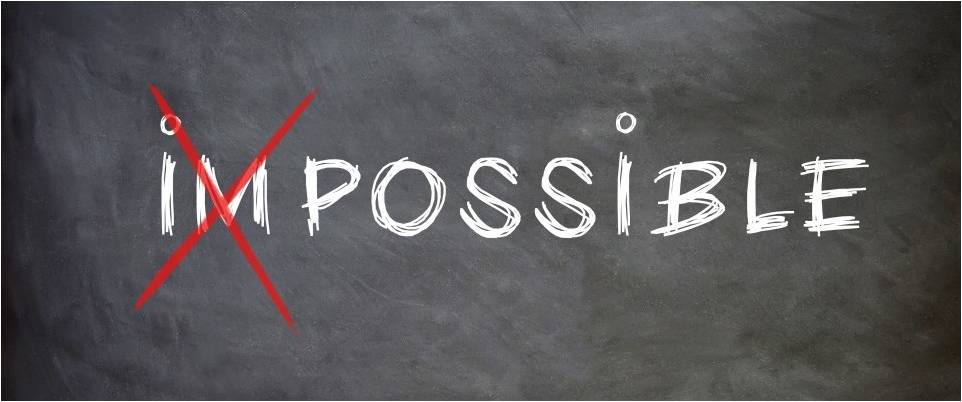
Finding help
Who can I talk to?
- Friends
- Family
- Health professional (GP; Counsellor Nurse)
- Charities
Select the underlined topics below to view what resources are available.
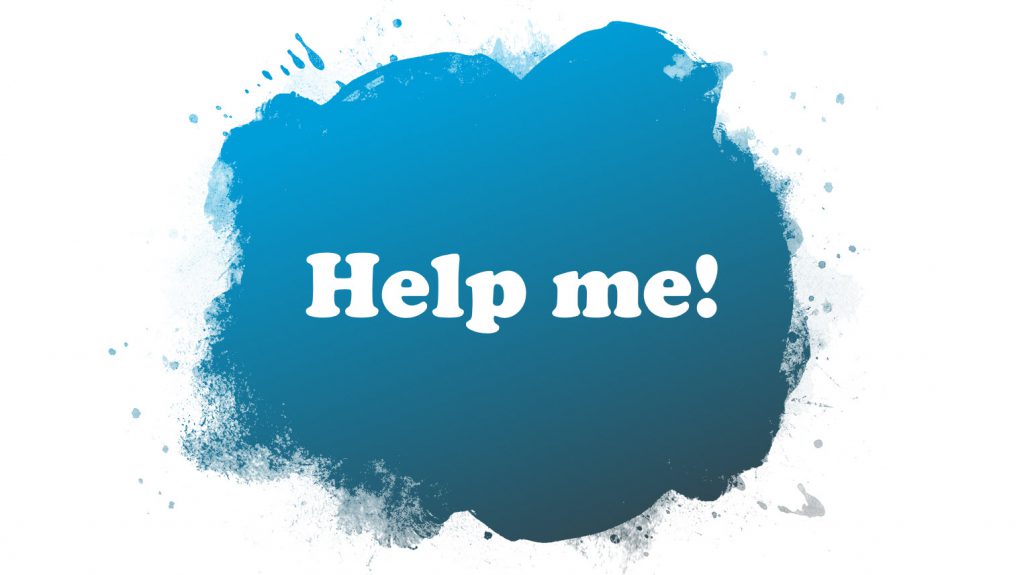
Getting more help
If you haven’t already found the help you’re looking for, you can find additional information and services which are more interactive here.
